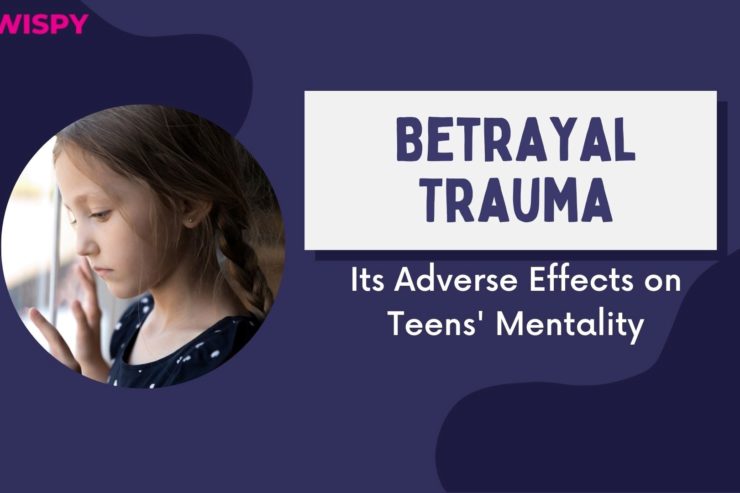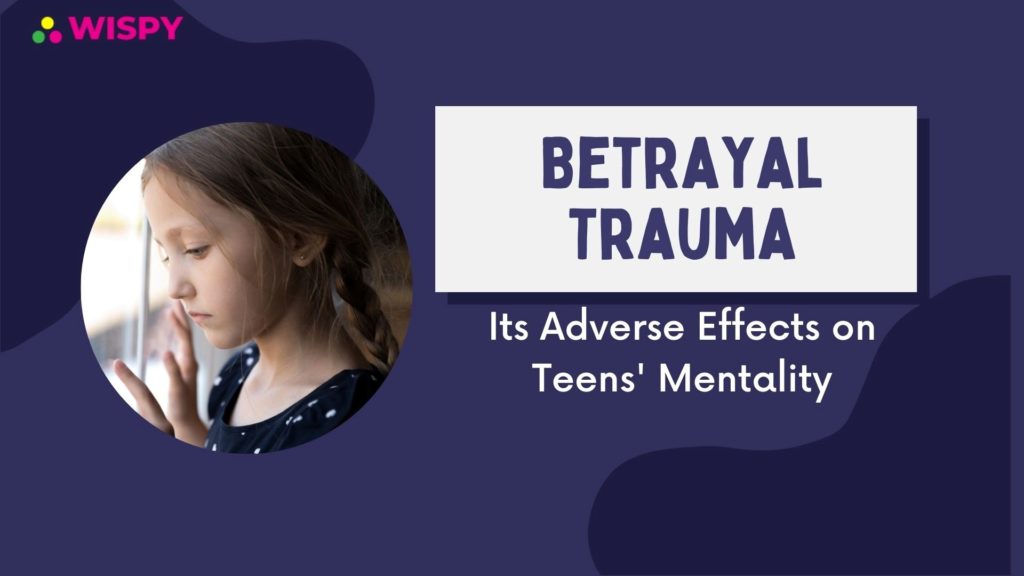Betrayal trauma isn’t often discussed; however, those who have experienced betrayal can testify to its devastation. Trauma is typically mentioned in connection with important events that cause distress, such as sexual assaults, near-death incidents, battles, natural disasters, and others. But, the loss of trust could cause emotional and physical post-traumatic stress.
Betrayal trauma can shake the world, the realities, and the expectations the teens had about their parents or friends before the moment of betrayal. The signs that are experienced may vary. However, the victim usually feels extremely painful, confused, and lonely.
The betrayed person often feels various emotions. That includes anger, sadness, wanting revenge, need to get back to normal, and sometimes guilt.
Densifying the signs the symptoms of trauma in children could aid parents in understanding the complexities of these behavior patterns. This can also help prevent confusion since these signs may be similar to other symptoms.
What is Betrayal Trauma?
Betrayal trauma refers to the emotional and physical pain resulting from a trusted organization or loved one or an intimate partner violating the trust. Betrayal trauma could occur along with gaslighting or other incidents that can cause depression and anxiety.
What are the Types of Betrayal Trauma?
There are many types of traumas resulting from betrayal, such as:
· Parental:
When a parent you depend on does not respect you or fails to shield the child from danger. Then kids often become the victim of betrayal trauma.
· Life Partner:
It can happen if your partner has an affair either physical or emotional. If one of your partners is a sex addict, there is likely the possibility of betrayal.
· Institutional:
When an entity impacts you in a manner that is completely contrary to what they claim as or their declared objectives and mottos, it can also happen when an institution shields the perpetrator rather than helping those who are victims as “whistleblower.” This may be an educational institution or the military, health systems, and so on.
· Interpersonal:
When a trusted person, a friend betrays your confidence in them, then it results in interpersonal betrayal trauma.
Adverse Effects of Betrayal Trauma on Teen’s Mentality:
Emotional Abnormality:
The effects on the trauma victim can trigger a wave of feelings and questions regarding the relationships. An irresponsible parent or friend might question the validity of the relationship. They become unsure of what caused their parents to commit such a huge deed of betrayal.
Suppose the victim is aware of the ongoing betrayal of their loved one or a one-time betrayal event. In that case, the consequences of the incident could trigger intense anxiety, terror, and an overwhelming sense of helplessness.
Bad Physical Health:
Betrayal trauma theory states that infidelity does not just affect the person who has been betrayed emotionally but also physically. Physical signs could make the victim perceive their body and weight gain/loss and sleep disturbances. In addition, facial expressions of anger, stomach illness, dislike of intimate contact, tears, diarrhoea, loss of hair, and much more.
Increase in Regular Living Stressors:
Trauma from betrayal affects a child’s daily routine, just as it can affect their short and long-term physical, emotional and mental wellbeing. The betrayed one might become a victim, especially when it comes to aspects of their relationship in which they depend on their parents.
Trauma from betrayal may affect how the person who has been betrayed is present at the home, school, at work, as well as with family and friends and in other aspects of their lives.
Anxiety:
This can manifest as generalized fear or a specific fear related to the act of betrayal.
Lack of Support:
Because of the pressure of online shame, guilt, and humiliation, the betrayed person is reluctant to seek help. They may be unwilling to allow their loved ones, members and acquaintances to know the circumstances they’re going through due to various reasons.
They might feel that the act of betrayal affects them somehow or want to safeguard the image of their loved ones. It isn’t easy to decide what to do when confronted with a traumatizing experience in a relationship that is so important.
Depression:
When you do not acknowledge or express your feelings, depression is more possible in such case.
How to Reduce Effects of Betrayal Trauma and Help your Teen Recover?
Ensure Teens Take Care of Their Body:
The way to take care of your body requires providing it with the food and attention it needs. The mind and the body are interconnected. Although taking good care of your physical health might seem like a distant pursuit.
However, it’s an essential aspect of laying the basis for an enlightened mind, and teens should learn that. Make your teen drink plenty of fluids, eat healthy meals containing lots of vegetables, and choose exercise to boost their mental wellbeing.
Teach Kids to Practice Mindfulness:
Mindfulness is all about aiding us in becoming more present in the moment and how we experience it within our bodies. Recognizing what we see and being compassionate towards yourself, without judging anything you observe.
This is not about clearing your thoughts. It means being aware of the happening events or emotions within your head and not trying to alter it. And you should teach your kid to accomplish that.
Practice Calming Activities:
Exercise and other mindful activities, like martial arts Pilates, and yoga, can help reduce stress and strengthen our connection to our bodies. Progressive muscle relaxation becomes effective in a variety of ways.
Try to Build Healthy Relationships:
There is no perfect relationship. The people we love can fail us. What makes a secure connection different from one that is dysfunctional. If you make mistakes or the feelings of someone hurt, both people can discuss it.
After you have finished the discussion, you’ll feel respected and heard and feel good about yourself in general. It’s good that teens understand the importance of building a healthy relationship after trauma.
Set Boundaries:
The art of setting proper boundaries isn’t the same as setting boundaries. It is a little complicated when you’re first understanding boundaries. Limits will safeguard your teen from harm when an unsavory event occurs.
Use Parental Monitoring Software:
If you fail to make your teen understand or teach the art of dealing with trauma, then you must think of a better alternative. At a younger age, kids tend to make rash decisions due to traumatic events in life. You can download a reliable parental controls app on your phones to monitor your kids’ digital life.
You can remotely follow them around using the GPS location tracker. Or read inappropriate texting through the SMS tracker app while the parental app can help block perverts.
It won’t make the risks disappear but surely gives parents enough information to satisfy teens’ online behaviors. You can even hack phone contacts using the parental monitoring software.
Conclusion:
It’s not hard to overlook the significance of investing in your teens’ self-healing. Suppose your child has suffered a major loss, like abuse by a trusted family member or intimate partner betrayal. In that case, they require the guidance of a professional who will walk alongside the healing process.
Be aware that your kid is receiving assistance and guidance throughout this process. There isn’t any need for a fix but to recovery. It’s worth investing in your child’s healing process, not only for yourself but also for the people your children can impact.



